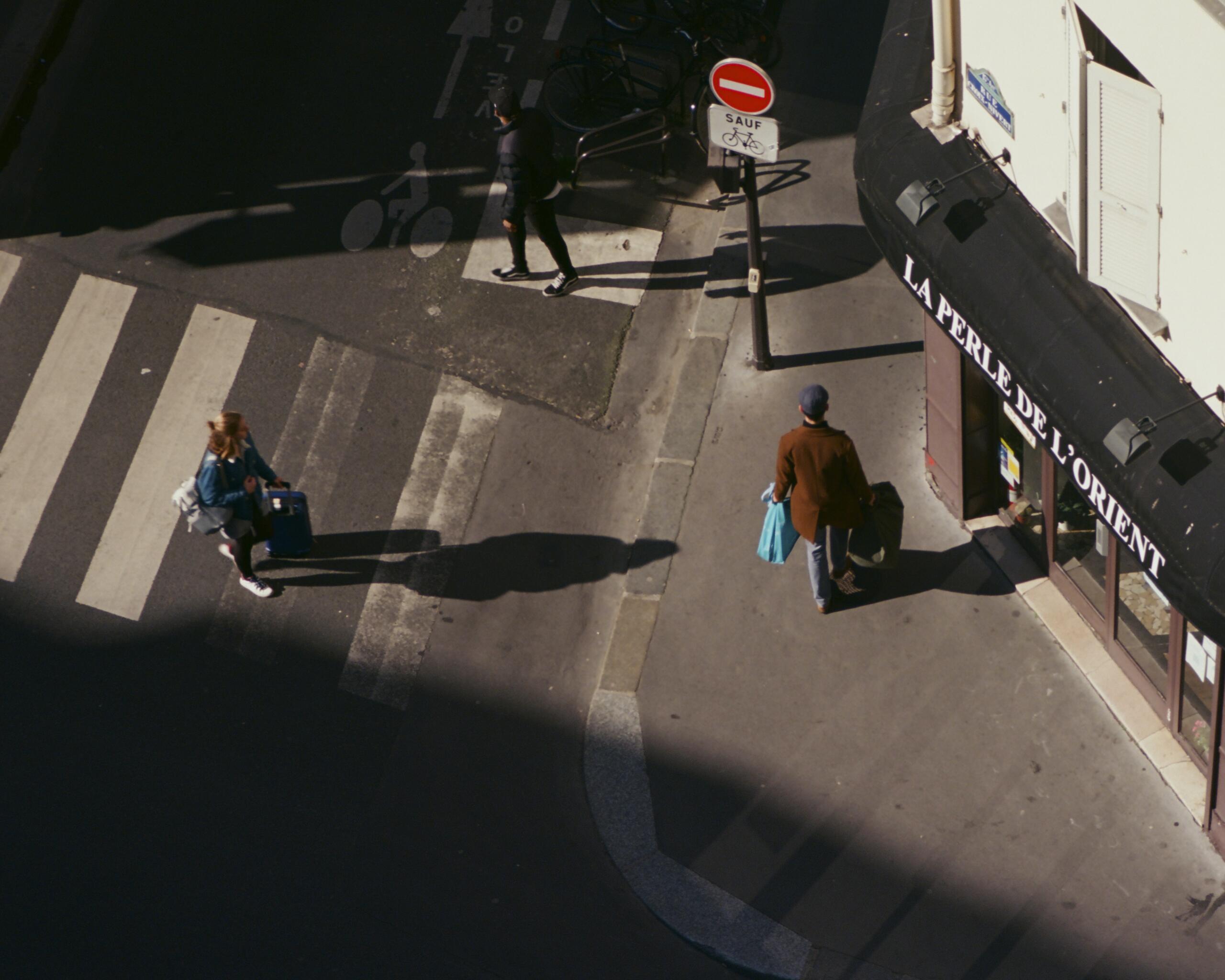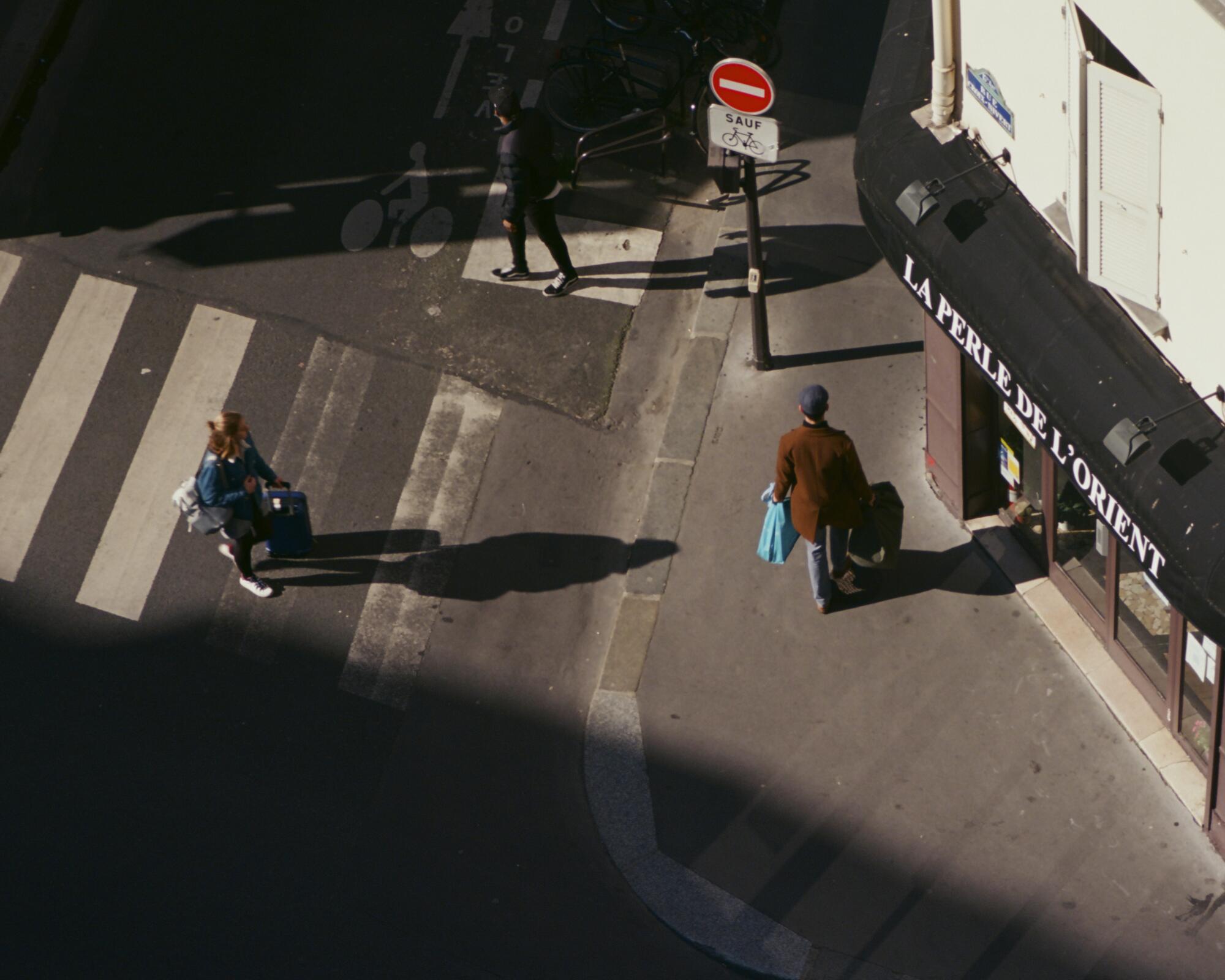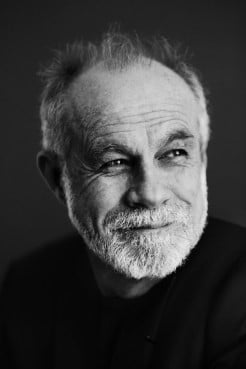15-year city
While preparing for the Annual POLIS Conference 2022, Karen Vancluysen POLIS' Secretary General, had a conversation with our Closing Plenary's Keynote, Prof. Carlos Moreno, to discuss his acclaimed 15-minute City concept... and much more.
POLIS: You are the father of the 15-minute City, a concept which has been gaining ground and could radically change the way our cities are shaped. Could you briefly explain what the concept entails?

Passerbys walking in Paris, France. Credit: Jeff Frenette / Unsplash
Carlos (Moreno): The 15-minute City is a polycentric city, where density is made pleasant, proximity is vibrant, and social intensity is real. It proposes to redesign the organisation of the city so that residents can access their essential needs in a timeframe that does not exceed 15 minutes by either walking or cycling. We take into consideration six basic needs: housing, working, supplies, healthcare, education, and sport-enjoy. Three major concepts guide the development of the 15-minute City: chrono-urbanism (taking timing into account when urban planning), chronotopia (a place taking on different functions depending on temporality), and topophilia (one’s attachment to a place).
POLIS: How far are we from making the 15-minute City real?
Carlos: Transformation to a 15-minute City is a gradual process. It requires actions on urban planning, service development, citizen participation, and lifestyle changes…. cities are constantly evolving, and this requires time. The 15-minute City is a direction, a guide towards virtuous transformations: it is increasingly becoming a reality in places that have been committed to proximity and carbon reduction for several years.
Carlos Moreno
Carlos Moreno is the Scientific Director of the Chair 'Entrepreneurship, Territory, Innovation' at IAE, Sorbonne University. His internationally renowned and innovative approach led to the development of groundbreaking concepts related to modern urban issues, such as the ’15-minute City’.
POLIS: Which cities would you say are leading examples and why?
Carlos: Many around the world are embracing the concept and adapting their cities to a life of proximity. In Europe, Paris is a pioneer due to a strong political will to implement the 15-minute City. Indeed, since 2020, the concept has been widely deployed and Paris is becoming a real laboratory for it. Around the world, we see other cities that are implementing it, such as Busan (South Korea), Sousse (Tunisia), and Bogotà (Colombia). In the United States, the City of Portland adopted an action plan at the end of the 2000s to achieve a "20-minute neighbourhood" by 2030; in Australia, the city of Melbourne (Australia) has also followed suit. The 15-minute City has truly become a worldwide concept in theory and in practice that is spreading to all continents, which is why UN-Habitat has awarded it the 'Scroll of Honour' in 2022.

Cyclists in Amsterdam, the Netherlands. Credit: Sabina Fratila / Unsplash
POLIS: Will the 15-minute City also be inclusive? Cycling and walking are not for everyone - how do you make sure no one is left behind and how do we serve suburbia?
Carlos: Inclusion is at the heart of the 15-minute City because we already live in segmented, fractured cities with "zoning" urbanism. We propose to create more local economic life, use more local resources, and generate more neighbourhoods with social links. The concept also envisions a city that is connected in various forms so that it may be open to all. The facilities and public transport must ensure equity of use and inclusion. Indeed, the development of local solidarity is an integral part of the 15-minute City.

Passerbys walking in Paris, France. Credit: Geoffrey Chevtchenko / Unsplash
POLIS: Are you optimistic about the future of our cities?
Carlos: Yes, I am optimistic! Firstly, because we are more aware of the problems of urban spaces and can now act with full knowledge of them. Secondly, it is because I can feel a real desire for change coming from both politicians and citizens. The current dynamic is resolutely ecological and oriented towards well-being and quality of life on a day-to-day basis. Instead of the climate crisis, the health crisis with COVID-19, and the consequences of the war in Ukraine resulting in scarce energy and raw materials, the 15-minute City is showing its relevance and is increasingly being adopted. New proximities are one of the keys to facing these crises.
Click here to read the article in its original format.
About the authors:
Carlotta Inserra is Communications Assistant at POLIS. Currently, she provides support for different communication activities, including POLIS’ corporate communications and magazine. She is passionate about the intersections between social impact, communications and storytelling.
Karen Vancluysen was appointed as Secretary General of POLIS in September 2014, after having been the network's Research Director for 8 years. Since 1998, she has been involved in urban mobility networking, innovation, and policy activities as well as a wide range of European urban transport research projects.

